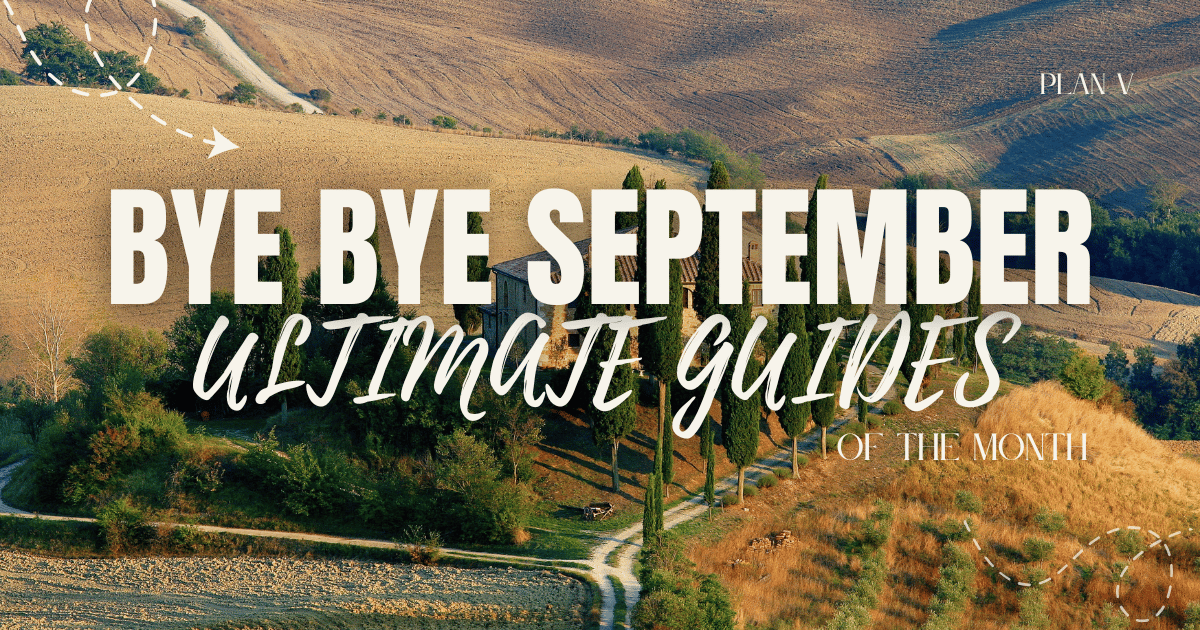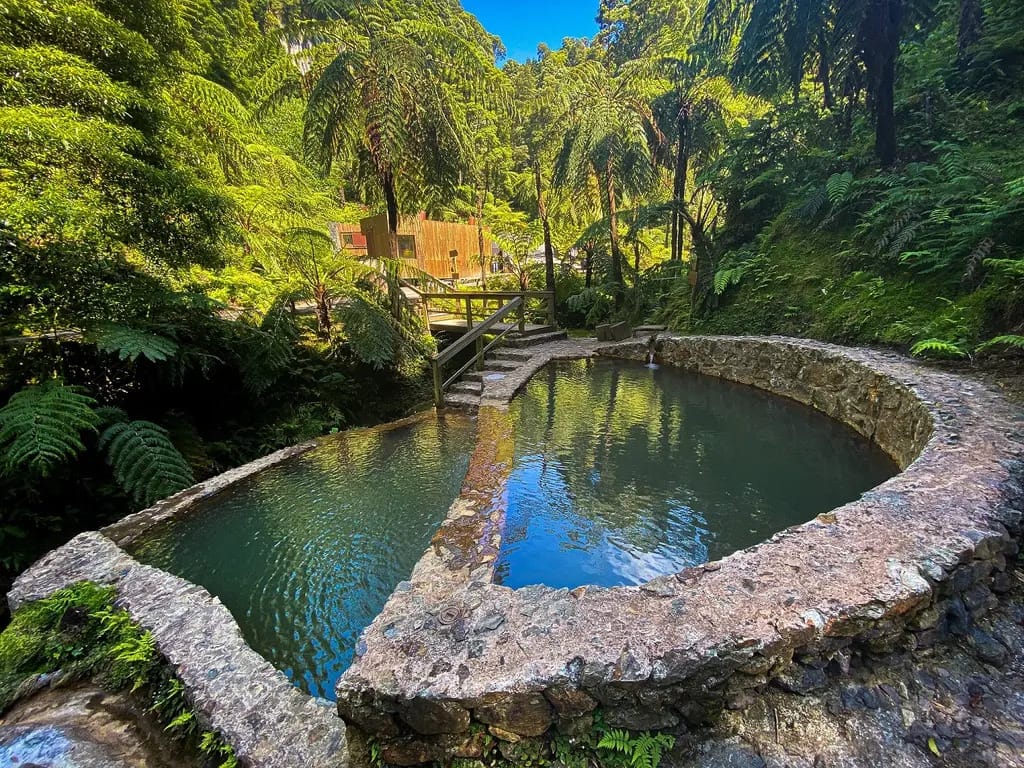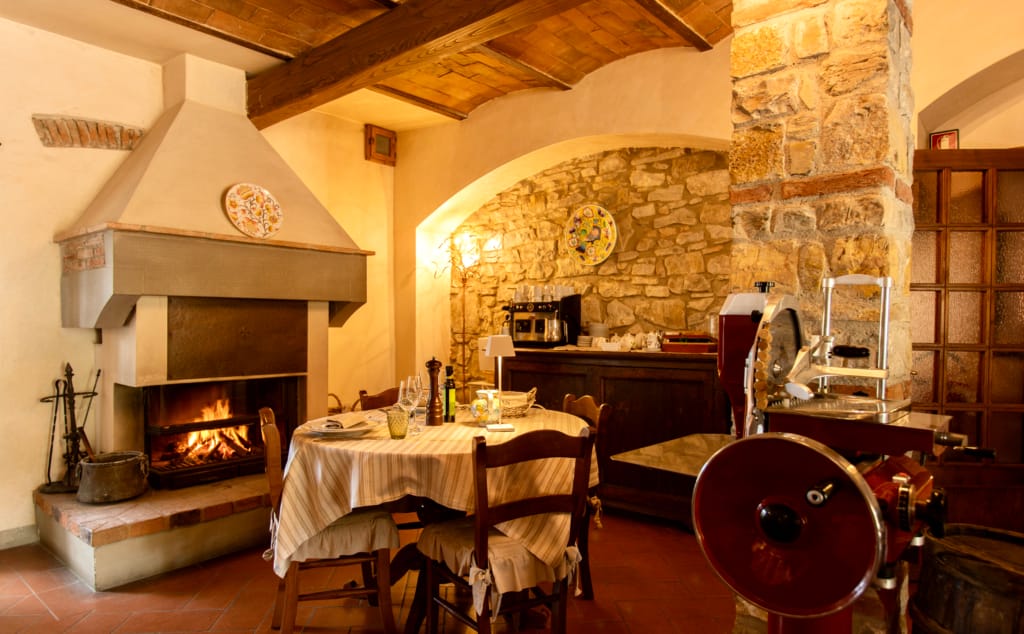- Plan V.
- Posts
- 🥷🏼🍷BYE BYE September! Here are the TOP 3 ULTIMATE GUIDES of the month 🌿🍂
🥷🏼🍷BYE BYE September! Here are the TOP 3 ULTIMATE GUIDES of the month 🌿🍂
Autumn was the star of the month. From a wine tour in Northern Mexico, to hot springs, to Asia. Here's a roundup of the guides.

We've said goodbye to summer and welcomed autumn. For many, the best season of the year begins; for others, it's a reminder of the continuity of life's cycle. Either way, I have destination guides that you should definitely visit—at least once in your life.
Here are the highlights of the month. You can share this newsletter with your travel partner.

🌿🍷 Let’s start with a glass of wine in Valle de Guadalupe: Fall Guide 🇲🇽
When the vineyards are awash in ochre and gold, and the cool temperatures create the ideal environment for tasting, it's time to explore the wine route in Valle de Guadalupe.
🍷 Wines
| 🌿 Sustainable Practices
|
September and October are harvest season, better known as La Vendimia (The Vintage). During these months, the wine experience is unique. Festivals come alive, producers organize special tastings, and you have the opportunity to witness the region's winemaking process.
🥷🏻🎌 WELCOME to the Samurai City in Japan 🎴
In an ancient city, the only thing you can do is learn and experience the most authentic cultural treasures. So, let's go together on this adventure.
This former castle town, once ruled by the powerful Maeda clan for nearly 300 years, preserves Japan's feudal heritage like no other city. Kanazawa offers travelers an intimate glimpse into traditional Japan, where samurai districts remain frozen in time and centuries-old crafts continue to thrive.
What to do in Kanazawa?
The city escaped the devastation of WWII, making it Japan's best-preserved Edo-period city. The Maeda clan transformed Kanazawa into a cultural powerhouse with artisans, merchants, and scholars. Nowadays, people walk the same stone-paved streets that the samurai walked and, at the same time, explore the districts where geisha practice ancient arts.
🏣 Where to sleep?
| 🍱 Where to eat?
|
SPANISH SECTION:
Aguas Termales en Portugal: Azores un paraíso de termas naturales
Aguas naturales que emergen directamente del corazón de la Tierra, rodeadas de paisajes volcánicos y una vegetación frondosa que parece sacada de otro mundo. Estas son las aguas termales de Azores, Portugal.
Las Islas Azores son un archipiélago de origen volcánico situado sobre el dorsal mesoatlántico; es decir, en medio del Atlántico. Justo donde tres placas tectónicas se encuentran.
Su ubicación se considera privilegiada por la formación de las aguas termales. Para que existan las aguas termales en Portugal -en Azores-, se necesitan tres cosas:
Actividad volcánica constante.
Un subsuelo rico en minerales.
Geología que permite que el agua se caliente naturalmente antes de llegar a la superficie.
Aunque el clima oceánico subtropical, las temperaturas estables durante todo el año y la alta humedad, son factores que favorecen a la creación del ambiente perfecto para las termas.
🇮🇹 🌅A Culinary Journey Through Authentic Italian Flavors
Locally sourced restaurants in Tuscany offer more than just a meal. They provide a genuine connection to the land, traditions, and community. That's when the warmth of the region comes into its own.
This style of restaurant also offers a win-win relationship: the land wins, and you, too.
When you dine at these restaurants, expect seasonal menus that change monthly, ingredients harvested within 24-48 hours of serving, and authentic flavors that reflect the terroir of each specific Tuscan microregion. The average meal at a sustainable restaurant supports 12 local producers, from organic farmers to artisanal cheese makers, creating a dining experience that tells the story of the landscape on your plate.
The Locally Sourced Restaurants Experience
These establishments represent more than dining venues—they're cultural ambassadors preserving Tuscan culinary heritage while supporting sustainable agriculture.
🍴 Choosing means
| 🍝 Also…
|
My personal recs
Podere Il Casale - Pienza, Val d'Orcia: The most requested dish is their "Pici all'Aglione" made with hand-rolled pasta using ancient grain flour milled on-site, topped with tomatoes grown in their organic garden.
Osteria di Passignano - Chianti Classico: The signature Bistecca alla Fiorentina uses Chianina cattle raised on the estate's organic pastures, served with estate-grown vegetables.
Fattoria Lavacchio - Pontassieve Hills: The signature Ribollita della Nonna features vegetables exclusively from their certified organic gardens, served with their award-winning olive oil.
Fattoria Poggio Alloro - San Gimignano: Specializing in estate wines paired with seasonal menus. Their celebrated Cinghiale in Dolceforte features wild boar from local hunters, prepared with estate-grown vegetables and herbs following a Renaissance-era recipe.
See you next time,




Reply